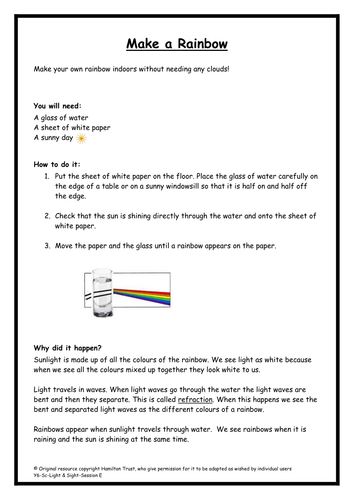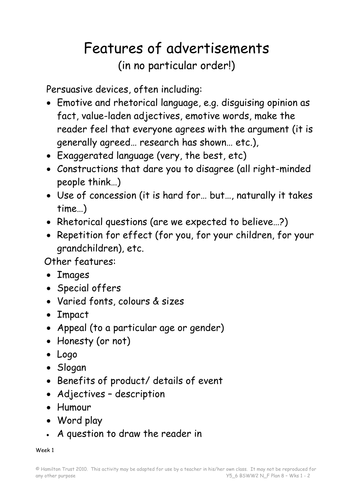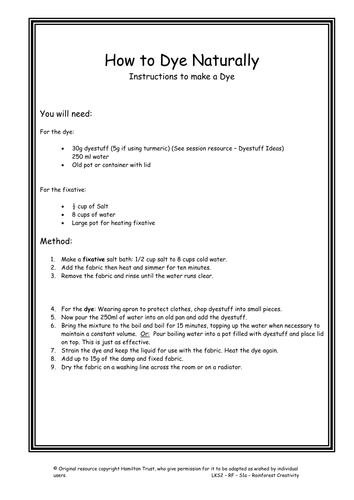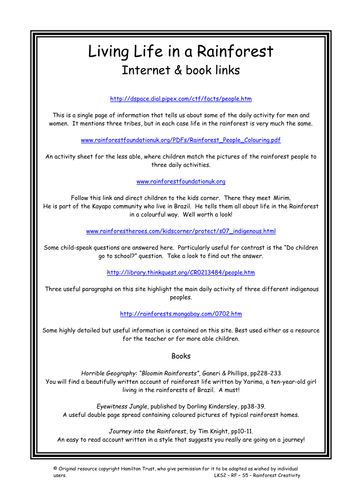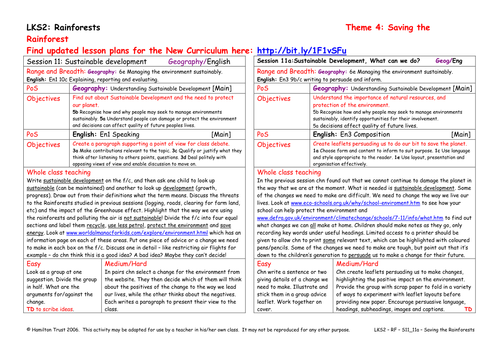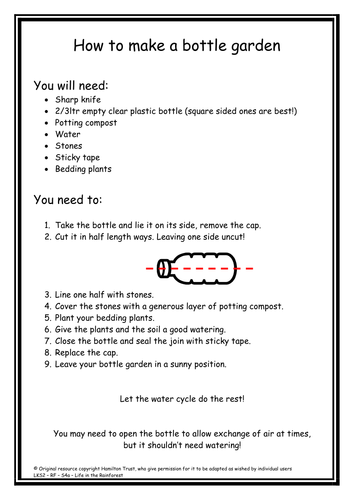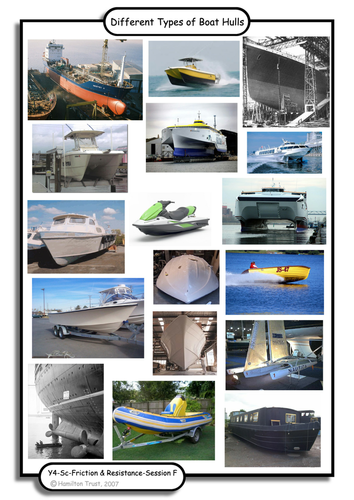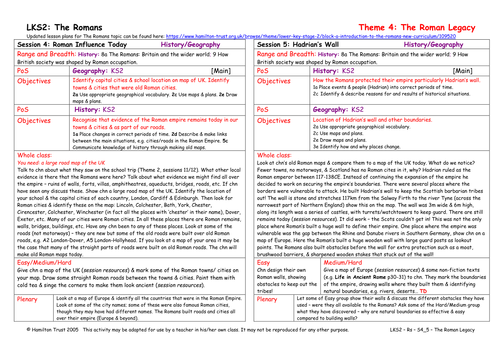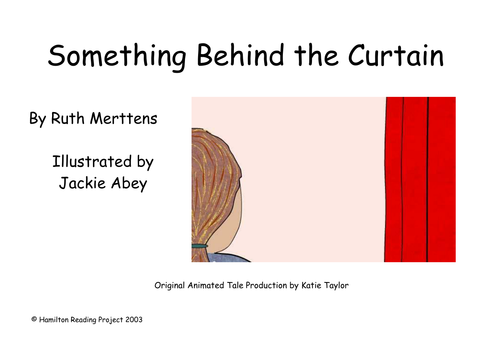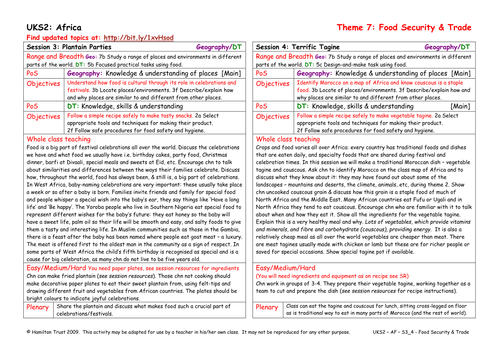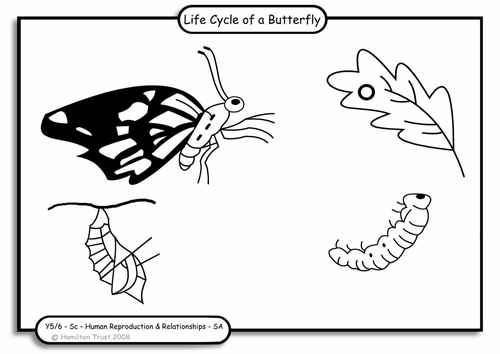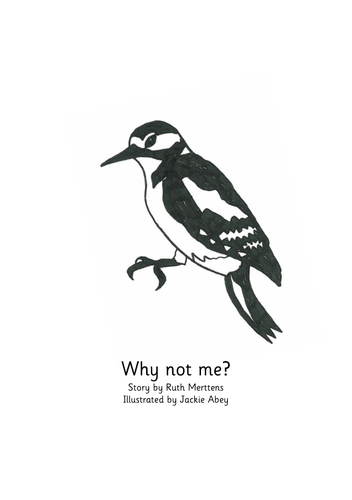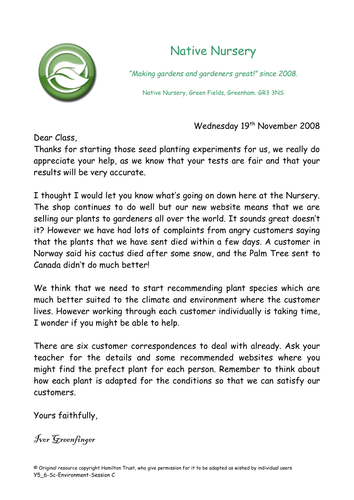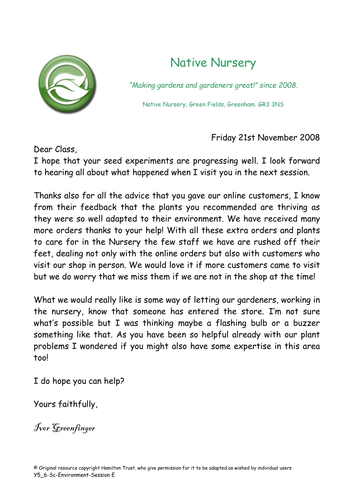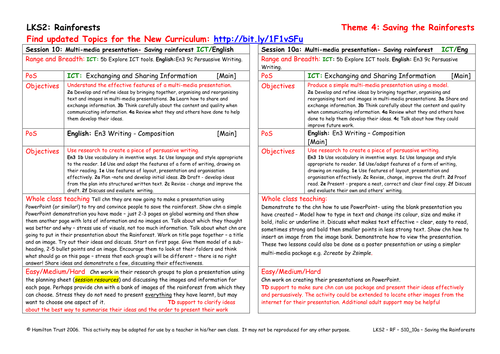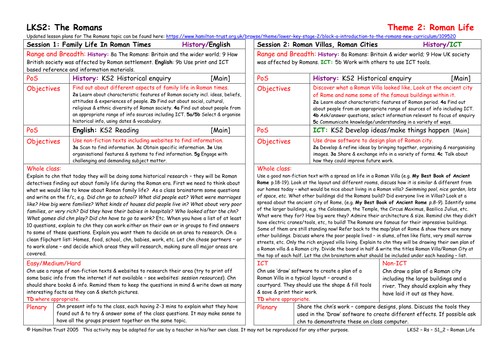
397Uploads
10045k+Views
11647k+Downloads
All resources

'Insight into Sight'
It’s time to prepare exhibits for a Science Fair called ‘Insight into Sight’ which brings together many of the concepts introduced in this block. In this session children create artefacts and prepare their explanations.
Suitable for Y6 pupils.

Persuasive language Weeks 1 - 2
Identify persuasive features used in adverts. Study adverts over the decades since the end of World War 2 in detail. Children create a paper advert about an exhibition related to the Topic. They then plan and present a TV or radio advert for a modern appliance.

Natural Colours, Natural Dyes
The book Deep in a Rainforest shows that the rainforest really is as bright as a rainbow. Children get access to a variety of natural materials and prepare them to create natural dyes. They record the process and dye small pieces of fabric.

Living Life In The Rainforest
The Rainforests are home to some 1.5 million people worldwide. But what is life for them really like? Chn take a close look in this session as they delve deeper into the forests and find out about life in the Jungle using books and ICT.

Sustainable Development
The way we are damaging the planet we live on is not sustainable! Children find out about sustainable development and look at some of the changes that we need to make. Children think of both positives and negatives for these changes.

Water Cycle in Miniature
On Earth we still have the same drops of water that touched the lips of the dinosaurs! In this session children use all that they have learnt in the previous session to create a self contained bottle garden.
Suitable for years 3 and 4.

Explore forces using toy cars
Understand that forces are pushes and pulls and make things speed up and slow down. Understand what makes a test fair and how to measure accurately. As a class and using toy vehicles investigate what happens if you change the height of a ramp.

Boat investigation
In this session children investigate how the shape and surface area of a boat can affect how easily it can move through the water. Children test a variety of designs before creating bar charts to show their results. Suitable for Y4 pupils.

Hadrian's Wall
Children study old Roman maps and look at the walls that the Romans built to protect their empire. They study Hadrian’s wall and look at pictures. They create their own map of the boundaries of the Roman empire, drawing walls, marking rivers, coasts etc.
Suitable for years 3 and 4.

Reception Non-fiction (Families): Names, captions and notices (weeks 1-2)
Discuss families and the various roles within them, read the following stories My Mum, My Dad, Me and You, all of which are by Anthony Browne and Don’t Let the Pigeon Drive the Bus and Don’t Let the Pigeon Stay Up Late by Mo Willems. Children write a book about someone who cares for them using similes and also notices for family members. They learn their address too. Activities include paper people, house plans, family portraits and names.

Plantain Parties
Children discuss how all cultures have celebrations and festivals – special days in which special foods are eaten and shared. In parts of West Africa a child’s 5th birthday is special as many do not live to be five. Children make fried plantain and decorate plates.

School Structure
Compare your school with your link school (or use a Ghanaian school). The UNICEF book 'A school like mine' is used as a starting point to look at similarities and differences. Children prepare a website describing their school or the UK education system.
Suitable for years 5 and 6.

Spotlight on South Africa 2010
In 2010 the eyes of the World will be on South Africa and a country where once no sports teams visited will be a focal point for 32 teams and their fans. Children find out more about the 9 host cities and create tourist guides for each.

Life cycles
Session 1 - Set up ground rules for this Strand. Revise knowledge of life cycles of butterflies and frogs which both involve metamorphosis and flowering plants. Discuss reasons for reproduction and consider animals facing extinction. Start reading Flour Babies.
Session 2 - Using the riddle of the Sphinx as a starting point, look in detail at the human life cycle and compare the stages with those of other animals. Look at the range of different gestation periods and life spans; draw graphs and look for patterns. Begin research.
Suitable for Y6 pupils.

Year 2 Fiction 3: Traditional tales from other cultures
Read and compare Hansel and Gretel by Anthony Browne, and Baba Yaga and the Stolen Baby by Alison Lurie, Francis Lincoln, and Baba Yaga by Tony Bradman using drama and story maps. Discuss joining sentences using or, and or but. Children write witch stories using story pegs to plan. Introduce some 'story language' and encourage interesting endings. Hamilton Group Reader, Why Not Me?, is used to build confidence in reading aloud.

Plants in the environment
The customers from around the world have come flooding onto the Native Nursery online shop wanting advice about which plants to buy for their climate. Children research each climate zone and make suggestions well suited to the conditions.
Suitable for Y5/6 pupils.

Design Ideas
Yet again the children are called upon to help out Native Nursery, this time to make the shop more secure. The children use their knowledge of electrical circuits and conductors to create and modify pressure activated switches.
Suitable for Y5/6 pupils.

Multi-media presentation - Saving rainforest 2
Children complete their presentations started in Session 10, bringing together the information they have collected in previous weeks and images selected from the internet.
Children watch the presentations and give feedback to their peers.

Selling Your Eco House
Estate agents are people who help us to sell our houses. Children will design an Estate Agents brochure to help them to sell their eco house. Discuss the use of persuasive writing. Create three forms – brochure, newspaper ad and online brochure.

Family Life In Roman Times
This session begins some work on family life in the Roman Empire. Children prepare for, and then carry out their own research. Each group picks an aspect of family life and then use the internet as well as books and information sheets to find out some facts.
Suitable for years 3 and 4.

